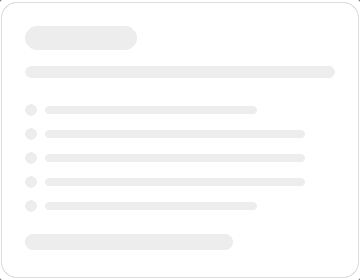www.wellresearchedreviews.comは安全ですか?
疑わしいウェブサイト
ウェブサイトのセキュリティスコア
42%
このウェブサイトは申請済みですか?
いいえ
コミュニティレビュー
★ 2.5
WOTのアルゴリズム
49%
子供の安全性
該当なし
コミュニティは何と言っていますか?
レビューを残す










フィードバックを共有してコミュニティに貢献しましょうレビューは少なくとも15文字で構成されている必要がありますこのウェブサイトを最もよく表すタグを選択してください
マルウェアあるいはウイルス
顧客サービスが悪い
フィッシング
詐欺
違法の可能性がある
誤解を招くあるいは倫理に反している
プライバシーリスク
不審
憎悪、差別的
スパム
潜在的に迷惑なプログラム
広告/ポップアップ
アダルトコンテンツ
卑猥な可能性がある
残酷あるいは刺激的
キャンセル
レビューの投稿
2.5









3のレビューに基づく
並び順:
最新
On my recent call, a Well Researched Reviews (WRR) customer service rep offered
incomplete and/or seemingly evasive answers to points I raised about its review of WebWatcher (WW)--
1. WRR gave a glowing review to web activity-monitoring software product WW, placing industry stalwarts like Cybersitter and NetNanny on almost a second-tier of
inferior competitors. Yet, WRR used an arbitrary and unsystematic system for its
rating-- the equivalent of saying "Take our word for it".
Not only do professional software reviewers writing for and/or employed by
industry-based publications typically refuse to gush positive (or negative) over any
product, but they take pains to explain a systematic basis for their evaluations.
In stark contrast, WRR offered a very limited number of arbitrarily-selected points of evaluation, to the exclusion of all others, as a basis for its glowing praise. WRR's one "negative" was to state WW does not run on a Mac computer-- a doubtful negative to most readers using Windows machines.
2. According to the customer service rep, WRR has no affiliation with and gets no
subsidy or consideration from publishers of WW. "Nothing I know of," she insisted.
Actually, she may have noticed I wanted a definitive answer, not what she claimed to
know-- or not know.
3. I specifically asked the same rep certain obvious security questions, and a
paraphrased excerpt of the exchange follows--
First, I observed that WRR praised WW for its ability to monitor remotely multiple
computers, recording screenshots and every keystroke on the remotely monitored
computer. However, since black hats (hackers) also use this technique routinely to
steal passwords and bank account numbers via key loggers and other malware, what is placed on the remotely monitored computer-- a keylogger? The rep made no answer.
Second, I questioned the WW claim that the WW remote monitor capability is "highly
undetectable"--
"http://www.wellresearchedreviews.com/computer-monitoring/WebWatcher.html#features".
Specifically, I asked what is to prevent a remotely-monitored computer from detecting WW's key-logger caliber software. Many very capable root-kit and virus detection products are now in use-- indeed, professional security companies may already have distributed a signature to detect characteristic activity and software used by WW.
The customer service rep replied WW uses SSL and port 443, essentially a statement that all traffic on this port is "secure" according to the SSL definition-- but in no way offered me a coherent reply to my question about detection by IDS systems used on the remotely-monitored computer.
Later, in a second try, the rep said WW uses "exclusions" to modify the IDS system in
use-- in effect tinkering with whatever IDS alarm system it recognizes to "blind" it to
WW. If this much is true, then two points apply--
(1) WW works only if it senses accurately (and reliably) the IDS system in place on the remotely-monitored computer AND can change the remote system's IDS list of known malware and keylogger signatures-- almost impossible to do with most such systems, since (otherwise) all malware could wave to the IDS guard in the guardshack and shout, "I'm OK!"
(2) The use of exclusions means there IS a recognizable signature to WW presence,
rendering beside-the-point whether WW admits its monitoring involves actual dropping of keylogger software on the remote machine.
4. Finally, a very serious question-- what if a black hat sold his keylogger software
("XYZ" ) on the open market, claiming it is a "remote monitor", instead of a keylogger?
Conveniently for the black hat, all XYZ keylogger functions remain fully intact, and the
black hat is actually paid by the buyer for the privilege of introducing the XYZ keylogger to the buyer's own computer, as well as remotely-monitored systems.
This is the question every buyer must consider before believing claims of certain software reviewers.
1
They make reviews and recommendation for monitoring and security solutions rated by WOT yellow or red like: WebWatcher, SpectorPro, SpyAgent, NetNanny, CyberSitter, ContentProtect.
They try to look like an trustworthy source of security software, but they definitely aren't!
1
Most of the software they recommend is rated yellow or red.... but these guys are rated green? Seems kind of inconsistent to me. Can someone clear this up for everyone? I'd like to know: which is it? Are these guys not trustworthy, or are the sites they recommend trustworthy?
2
このサイトでは分析とパーソナライズのために Cookie を使用しています。 続行すると、当社の クッキーポリシー。
受け入れる
